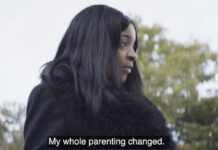In new research, Paul A G Forbes and colleagues find that autistic adults display greater generosity towards strangers than their non-autistic counterparts.
The study also finds that autistic adults are less affected by how that generosity is framed. Autistic adults made a more generous choice on average 88% of the time versus 75% for non-autistic participants. The observed increase in generosity was especially true for socially distant others, meaning autistic adults were much more generous with strangers than their non-autistic counterparts.
The authors write:
“We found that compared to a group of non-autistic participants, autistic adults shared more money, especially with people they felt less close to, such as strangers. The results suggest that autistic adults were more generous because they made fair decisions more consistently regardless of how close they felt to the person they were sharing with. By showing that autistic adults display greater generosity, our results could help to change public perceptions of autism and potentially improve opportunities for autistic people.”

The study was published online on preprint server PsyArXiv and has not been peer-reviewed.
The researchers investigated differences in social discounting in autistic and non-autistic subjects. Social discounting is the tendency for people to be less generous towards those more socially distant from themselves as opposed to friends and family. The authors recruited 53 participants between 20 and 47; 28 were formally diagnosed with autism spectrum disorder, and 25 were non-autistic adults.
Participants were given an Autism Quotient (AQ) survey in which they responded to questions about autistic traits around social skills, communication, attention switching, attention to detail, and imagination. Participants were then presented with a trial in which a hypothetical person was rated at a social distance of 1, 5, 10, 20 (friends and close acquaintances), 50 (people they had seen a few times), or 100 (strangers). The participant was then asked to imagine, hypothetically, distributing money between themselves and the other person.
The trials were presented with two separate frames, gain and loss. In the gain frame, the other person was depicted as having 0 euros, with the participant having to choose whether they both received 75 euros or a larger sum for themselves, with the other person receiving nothing.
In the loss frame, the other person was depicted as having 75 euros, with the participant having to decide whether to give 75 euros to themselves and nothing to the other person or have the other person lose 75 euros while they themselves gained a larger amount.
Autistic participants were more likely than their non-autistic counterparts to make a generous choice when distributing the money in the trials. On average, autistic adults made the generous choice 88% of the time versus 75% for non-autistic participants.
Autistic participants made more prosocial decisions than non-autistic participants, meaning they were more willing to lose out on money to benefit others. Autistic participants were less affected by social distance in the trial and were more willing to distribute money with strangers evenly. They were also less affected by the framing of the distribution as a loss or gain for the other person than their non-autistic counterparts.
The observed increased generosity was linked with three aspects of the AQ subscales: social skills, communication, and attention switching, but not to attention to detail or imagination. The authors note that this finding indicates that prosocial behaviors may be linked to both social and non-social aspects of autism. Attention switching was the only AQ subscale related to the reduced framing effect for autistic participants.
The current research has several limitations. First, the hypothetical nature of the task makes it unclear whether the finding would generalize to real life. Also, the small sample size makes generalization to larger populations dubious. Autistic participants were all recruited from an outpatient treatment clinic, meaning those not in treatment were not represented. There is little demographic information available for participants, meaning connections between generosity and race, class, income, etc., could have been overlooked.
The authors conclude:
“We show that compared to a neurotypical group, autistic adults were more generous to other people, especially to those who were more socially distant. Greater self-reported difficulties in social interaction and communication as well as attention switching were associated with this increased generosity suggesting that both social and non-social aspects of autism contributed to these effects. We suggest that autistic adults implement fairness norms more consistently resulting in increased generosity, but future research is needed to test these claims. We also extend previous work showing reduced framing effects in autism. More generally, our results challenge historical accounts of autism by showing that the differences seen in autism can also have beneficial effects for social behaviour and prosociality.”
Previous research has found reduced cognitive bias in autistic subjects, which may partially explain the current work’s finding that autistic participants were less affected by social distance and framing of losses and gains.
Research has found that autism screening for toddlers produces many false positives, possibly as high as 82% of positive tests. The rise in autism diagnoses may also be partially explained by “virtual autism,” a mimicking of autistic traits caused by over-exposure to screens such as TVs, video games, tablets, and computers. Some scholars have argued that a business model has been developed around autism diagnoses that exploit people to sell coercive treatments.
Social discounting and its consequences could become much more pronounced as governments worldwide are under increased pressure to pursue policy around concerns such as climate change. With decreased social discounting, people are more likely to forgo luxuries (such as increased carbon use) for the benefit of others.
****
Forbes, P., Chaliani, I., Schilbach, L. (2022). Autistic adults show enhanced generosity to socially distant others. Preprint (Link)
Editor’s Note: This piece was updated to clarify some limitations of the study and that the study has not been peer reviewed.















This sounded to my ears and to my eyes as follows:
“It seems the autistic may have tendencies to be more like communist and the fact that the going rate of diagnosis is 1 in every 30, they may become anti-capitalism in the future and try to dismantle our beloved system. We need to diagnose them more so when they become a political bloc, strong enough to change the labeling and diagnosing systems, we can scoop them up and call them crazy! Or disable”.
My sarcasm glasses are off now. Interesting choice of words that any co-morbidity to indicate neurodivergence was not mentioned.
My political bias is showing but I think we are all undermining what it means to be autistic and why it is coming to the surface now more and more powerful!
Report comment
My adult step son has level 3 (severe) autism and is exceptionally generous even to strangers as the article suggests. I had never heard before that this was a usual or common characteristic of autistic people.
In my step son’s case this generosity can be a problem because his intentions, which I believe are only to try and be kind and friendly are often misunderstood.
Report comment
Psyche belongs to hellenism, not to greedy hebreism without soul, so people with diagnosis are not goyim. And they have diagnosis, because they are not slaves like goyim. So they must be punished by goyim. Read Hillman, he wrote about what happened when hebraic anticulture stole “Greece” from soul. Psychiatry and diagnosis are hebraic weapon against politheistic psyche. And they can’t cope with the psyche with one god option. They also forget about the fact that one god is a religion ( spirit) not the psyche. So authistics and schizophrenics are a threat to fixation of unity. And they must be destroyed for the fixation of monotheistic unity. Those are legal murders. People do not understand the roots of “mental health” fixation.
Psychiatry is a weapon of barbaric monotheism without soul. I also believe in God. but not in monothestic materialism which is one true religion. People believe in monotheistoc materialism, not in God. If monotheism (monism) have an enemy, this will be the idea of the psyche ( mythic imagination). We live in totalitarism without soul. In which there was no one who is smarter than Kraeplein. Pathetic. And the connection of theology and Kraepelins lame rhetorics, have nothing in common with God or the love of neighbor.
Report comment